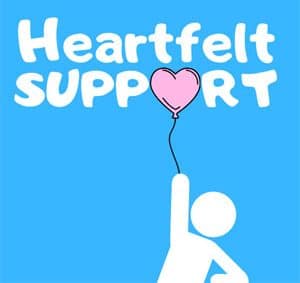Horses have long been associated with Australia – think The Man From Snowy River. Hanging around with horses is a great way to relax and when you are relaxed, you are more receptive to interaction with those around you. Combining horses with trained therapists of various kinds can offer a pathway to overcoming emotional, mental or physical problems by providing a safe environment where you can talk freely without judgment, enjoy the physical interactions, and see real improvement.
To quote a peer-reviewed scientific paper on the topic ” by affecting multiple systems such as the sensory, muscular, skeletal, limbic, vestibular, and ocular systems simultaneously, leads to psychologic, social, and educational benefits that will be evidenced in behavioral patterns used in other environments. ” (Granados-Agis, 2011)
The Benefits of Equine Therapy
There are a lot of claims about Equine therapy. Let’s start by saying it’s not very well defined and a lot of people call a lot of things Equine Therapy, or “equine assisted therapy” or even “hippotherapy”. In an article in Nursing Open in 2020, Sharon White-Lewis finds there are 26 medical uses for horses. So that’s a lot of ground to cover.
Perhaps let’s start with autism, because in our activities here in Adelaide, that’s our #1 group of clients. A study published in 2017 outlined it this way “Through the multisensory dynamics of therapy, autistic children came to ‘surprise’ parents and teachers with their intersubjective, communicative, and empathic abilities.” In other words, the opportunity for an increase in the scope, efficacy and amount of communication.
Another large group for us is people with PTSD or other trauma related issues. A study of 57 veterans with PTSD in the USA found that “Participants had a statistically significant decrease in PTSD scores after 3 weeks … as well as a statistically and clinically significant decrease after 6 weeks”.
It’s worth noting that in every study we cite, there is always a combination of horses and people who know what they are doing. Neither horse nor therapist can get these sorts of results alone!
Where Can You Go for Equine Therapy?
There are a variety of places, and each offers a different program and different outcomes. Our program in Trott Park, SA is more aimed at mental and emotional wellbeing, there are others that can help with physical issues.
(You can register your interest here)
How Does Equine Therapy Work?
There is some debate about that. One thing that has been repeatedly demonstrated is that the stress hormone cortisol is reduced in people who are around horses, as shown in a Washington State University study, among others.
Cortisol affects our “fight or flight” response so reducing or controlling cortisol levels is a major factor in success and is a success in itself.
For physical therapies, the benefits are more around the range of movement needed to engage with horses. Physical therapies often revolve around riding, whereas mental and emotional benefits accrue from just hanging about with horses.
How Do I Choose a Therapist?
If you’re considering equine therapy, there are several things to consider before choosing a therapist. First, if you are on the NDIS, make sure the therapist is considered a therapist under NDIS rules or you may find the agency, or your plan manager refuses to pay the invoice. This applies even if you are self-managed.
Mostly you need to find someone who you get along with and who works for you. That is really the most necessary part of the choice.
How Much Does Equine Therapy Cost?
Equine therapy is charged at different costs for different therapies. At Heartfelt Support, we charge the official NDIS published rate. We also have a safety officer present, who is a support worker with extensive horse experience, at every session, but there is no additional charge for that.
So Why Is Equine Therapy So Popular?
It works, it’s fun, and it’s engaging. That’s a pretty good set of characteristics for a therapy. After all, a therapy people actually want to do is a great thing, and we’re proud to be part of it. You don’t have to be The Man From Snowy River, you just need to enjoy the company of these magnificent creatures.

